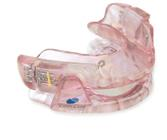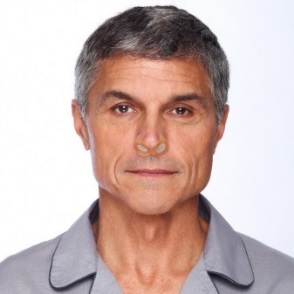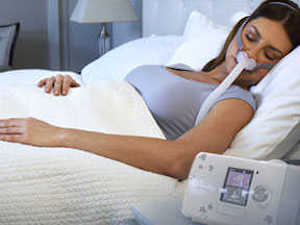Snoring and Sleep Apnea Treatments
What if Snoring or Sleep Apnea is found on my sleep study?

Treatment will vary based on a number of factors including the severity of the condition, your symptoms, your level of general health and body shape. Options may include:
- Weight loss
- Sleeping on your side (e.g Nightshift, or a repositionary device)
- Continuous positive airway pressure (CPAP)
- Mandibular advancement splint (jaw advancing splint)
- Upper airway surgery
- Provent therapy
- No treatment or long term monitoring
What are the options for treating snoring and sleep apnea?
At the Sleep and Lifestyle Clinic the treatment recommended by your clinician will be individualised depending on: the medical evidence of potential harm that may result from the condition, any symptoms or problems you may express, the logistics of therapy and its costs, as well as your preference for therapy.
When sleep apnea is moderate to severe or there are significant symptoms (see Information on Snoring and Sleep Apnea), the initial approach will be to usually offer CPAP or a Mandibular Advancement Splint (MAS) given that these options are often highly effective at controlling sleep apnea. Other methods such as, long term weight reduction and surgery are also considered as both CPAP and MAS are only treatments and not cures. One important aspect of any treatment modality is the monitoring of efficacy (i.e. with a sleep study or a CPAP machine download). Changes in symptoms are usually just a rough guide to efficacy and some objective recording is also necessary.
If the client is just snoring or has mild sleep apnea with minimal symptoms then a variety of therapies could be undertaken such as lifestyle modification, Mandibular Advancement Splint (MAS), Provent or upper airway surgery. A short description of each is given below:
Lifestyle modification
Improving sleep apnea can potentially be achieved by a number of approaches:
- Decrease weight with dietary modification
- Decrease weight with exercise and physical activity
- Decrease alcohol and sleep tablets intake
- Sleeping on side
- Decrease/cessation of smoking
It is possible to cure sleep apnea by weight loss. Unfortunately this outcome is not common and is impossible to predict. The vast majority of those who lose weight will reduce sleep apnea and perhaps 15-20% of these losing 10kg or more in body weight will achieve a cure. In a subgroup even when they lose weight unfortunately no improvement occurs.
Nonetheless, weight loss when needed, engenders a raft of mental and physical benefits and is recommended.

Mandibular Advancement Splints (MAS)
These devices are fitted by a dentist or orthodontist and act to reposition the jaw during sleep. The jaw is held forward (i.e advanced) at night which moves the tongue forward and creates more space in the airway.
These devices are often seen as a first line therapy in snoring and mild sleep apnea although careful assessment of jaw mobility and function needs to be performed by a dentist.
Upper airway surgery:
A variety of surgical techniques exist to assist snorers and those with sleep apnea. The common purpose of surgery is to reduce airway resistance and modify structures that are blocking the airway during sleep.
Surgery needs to be individualised and carefully considered given the potential for side-effects. Surgery is performed by a specialist surgeon after a physical assessment of your airway. Surgery may involve the nose, tonsils, soft palate (uvula) and/or tongue. A period of some weeks is required for post-operative recovery.

Provent
Provent are patches which are stuck over your nostrils on a nightly basis. They create a resistance as you breathe out which results in a back pressure in the airway to hold it open. Although most snorers think they are mouth breathers these devices are at least partially effective in most clients. Provent assists the user to naturally breathe through their nose when asleep. These devices are frequently used by CPAP uses when on holidays. They can be difficult to adapt to and also are relatively more expensive than other therapies (due to the patches being single use only).
What is CPAP?
CPAP stands for Continuous Positive Airway Pressure. It is mask that is worn at night that is attached by a tube to a small and quiet machine which is kept on the bed-side table or floor next to bed (most look like alarm clocks). CPAP therapy can be used at any severity of sleep apnea, but it is more common in moderate to severe patients. It applies air under pressure to the user via a mask worn during sleep. In recent times the technology has improved markedly so masks are more comfortable and light and the machines are extremely quiet and easy to breathe on. Nonetheless the use of such a device involves a substantial lifestyle change and usually requires a period of supported adaptation to the treatment.

CPAP, when set correctly, immediately abolishes snoring which is usually appreciated by the bed partner. The therapy prevents the upper airway from collapsing improving sleep and oxygen levels, the user breathes normally almost immediately. Studies show that CPAP lowers blood pressure, reduces the risk of developing high blood pressure and improve quality of life. When worn for adequate periods each night CPAP may reduce the risk of stroke, heart rhythm abnormalities, motor vehicle accidents and premature death . This is why the therapy is generally considered the most effective way to treat significant sleep apnea and is well worth any efforts to adapt to its use.
At the Sleep and Lifestyle Clinic, the introduction of CPAP will be performed as a trial where the equipment is rented. This allows changes in machinemodes and settings as well asmask(size and type) so that therapy is optimized prior to any purchase of equipment. This approach ensures that unnecessary expense is avoided. If therapy is not workable long term then the alternatives will be proposed.
For more information see our pages on:
Which is the Right CPAP Mask For Me?
Want to know even more about CPAP and sleep apnea treatment?
A number of professional organizations provide unbiased advice about the consequences and treatment options for sleep apnea. For more information visit:
- Australian Lung Foundations (www.lungnet.org.au or 1800 654 301)
- Australasian Sleep Association (www.sleep.org.au)
- Sleep Health Foundation (www.sleephealthfoundation.org.au)
- Patient support groups:
- Sleep Apnea Association ACT (www.sleepapnea-act.org.au or 02 6290 1984)
- Sleep Disorders Australia (www.sleepoz.org.au or 02 9990 3514)
